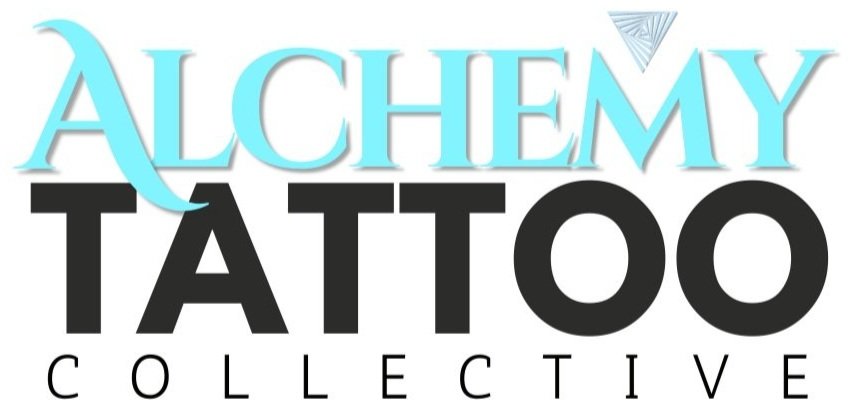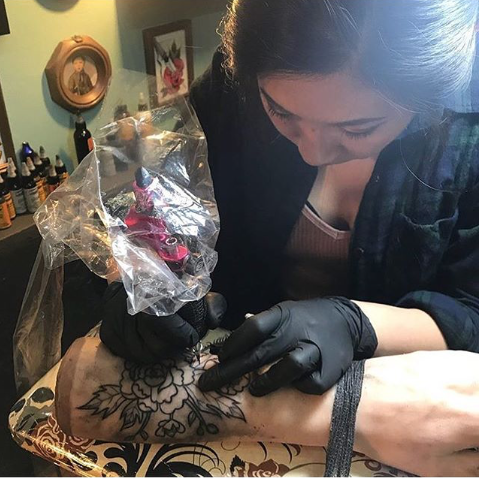What you need to know to break into the industry.
What does it take to get into the world of tattooing? There aren’t any tech schools or degrees, so how does one go about getting their tattooing license? Here are a few tips for those of you curious about what I look for in a tattoo apprentice, after 13 years in the industry. The regulations vary greatly by state, so I can only speak for my home state of Missouri, however a lot of these preparations with get you closer to tattooing no matter where you are from.
1. Portfolio, portfolio, portfolio. And no, I do not mean a collection of your pencil drawings from your sketchbook. That is not a professional artist portfolio.
When I look for an apprentice, I am looking for a student that already has a grasp on the technical aspects of design, composition, and technique. I look for portfolios demonstrating various styles, subjects, and media. Just a sketchbook tells me you have not put in the hours to make a completed piece of art. The sketch is stage one. If you have not experimented beyond that, you have not put in enough time. I suggest using YouTube to research and practice professional drawing and painting techniques. You want at least 15-25 solid pieces of various subjects and mediums that are not under-developed. Your art should show attention to detail, without any part of the design being overlooked or underdone. The better your portfolio looks (and you should be comparing it to professional tattoo artist work, not fine artists) the easier it will be for a tattooer to see your potential and your tangible, demonstrated dedication.
Subscribe to our email list to be notified when we are taking apprentices.
2. Get tattoos. I know, they get expensive but, if you want to really be taken seriously as a prospective student, you have to show a passion for the craft. Not only that, but there is a lot to know that just the process of being tattooed can show you. If you are not willing to make getting a tattoo a priority you should question your dedication to that career path. Getting tattooed will also give you the undivided attention of a professional artist. And, isn’t that what you are wanting out of an apprenticeship?
There’s no shortage of terrible tattoos on the internet. Found this gem on https://www.reddit.com/r/shittytattoos/
This is what home-made tattoos look like folks. And, I can assure you the "artist" learned very little by not having someone available to tell them what was going wrong.
3. Do not tattoo on yourself or friends. While many artists started by doing just that, it is still very frowned upon in the industry and is by far the most difficult way of learning anything. Imagine if your dentist learned that way. Tattooing without instruction communicates to the artist that you do not think you have anything to learn or any work to do before attempting a tattoo. It is disrespectful to the hours an artist has put in practicing to get where they are. If someone walked into your job and said they would cover your shift, but needed no instruction or training because they claimed it wasn’t needed, would you not scoff and say “good luck with that?” Nothing is as easy as it seems to the outside observer. Even the simplest of jobs require adequate training. Just like learning any technical skill, you have a lot of preparation work to do before you pick up the machine. I have seen first hand what home-made tattoos look like from your friend’s basement who was “a really amazing artist” in high school. It’s not good.
4. Once you have a well-developed art portfolio, ask an artist you respect and trust (by now you hopefully know at least one from getting tattooed) to critique your work. And expect to use their suggestions to improve. The critique is an invaluable learning tool you will use throughout your whole career, if you are lucky enough to find an artist to give it to you.
That’s it. If you are dedicated and keep the end goal in mind, I can promise you it will happen. There is no degree you can signup for or class you can buy your way into, but with a little intention and work, you will find a way.



